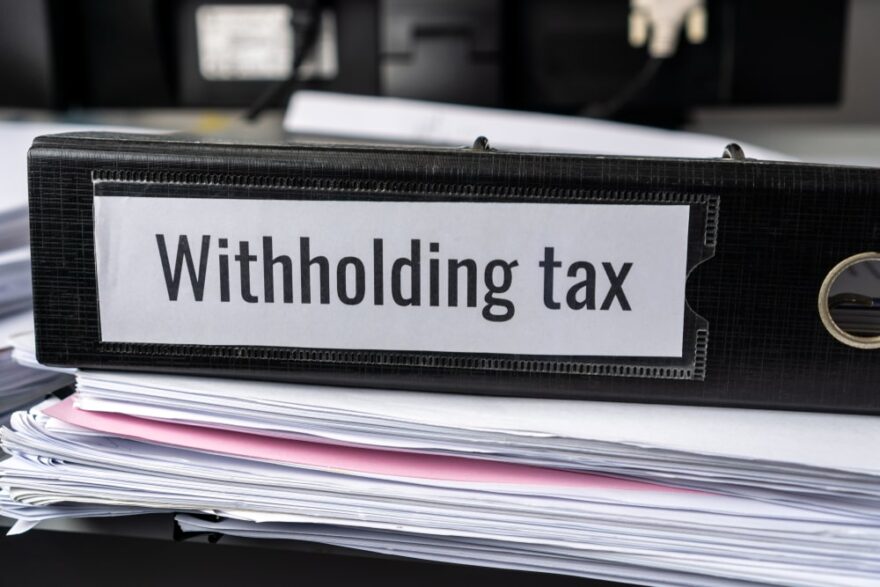
Generally, before the IRS can levy a taxpayer’s assets, it must notify the taxpayer of their right to a Collection Due Process (CDP) hearing. The IRS Independent Office of Appeals conducts the hearing and allows taxpayers to propose alternatives to enforced collection, such as an installment agreement, offer in compromise, or uncollectible status. However, the IRS may issue a levy in certain circumstances before notifying taxpayers of their right to a CDP hearing. One such exception is the Disqualified Employment Tax Levy (DETL).
The purpose of the DETL is to prevent employers from pyramiding employment tax liabilities. The IRS considers a taxpayer to be pyramiding if they are in business, are not current with deposit requirements, and have two or more tax periods with balances owed.
Taxpayers who fall within the DETL exception may have their assets levied without the general wait period provided to others.
What is a Disqualified Employment Tax Levy?
A Disqualified Employment Tax Levy is a tool the IRS can use to collect unpaid employment taxes from a business. Employment taxes include federal income tax withholding, as well as Social Security and Medicare taxes that employers must withhold from employees’ wages. Employers must remit these taxes to the IRS on behalf of their employees, and failure to do so can result in severe consequences, including a levy.
A DETL is comprised of the following components:
- A levy served to collect employment taxes,
- The levy is for taxes owed by a taxpayer who previously requested a CDP levy hearing related to unpaid employment taxes and,
- The prior CDP request involved employment taxes that arose in the two-year period before the period for which the levy is served.
In other words, if a taxpayer incurs an employment tax liability, requests a CDP hearing, and subsequently incurs a new or additional employment tax liability within two years, the IRS is not required to issue a pre-levy notice to the taxpayer and may immediately levy the taxpayer’s assets. The two-year lookback period applies to the tax period, not the date of a prior CDP request.
Let’s look at two examples:
- BSB Company had a CDP hearing for employment taxes for the fourth quarter of 2022 (quarter ending 12/31/22). It accumulated additional employment taxes for the quarter ended June 30, 2023. The look-back period for the new liability begins April 1, 2023. Since the prior CDP hearing falls within the two-year look-back period (April 1, 2021), the new quarter qualifies for a DETL.
- Gator Manufacturing owes employment taxes for the first quarter of 2022 ( quarter ending 3/31/22) and filed a CDP request. It failed to pay its payroll taxes for the June 30, 2024 quarter and requested a hearing for this period. The new liability will not constitute a DETL because the first CDP request is for a quarter outside the two years between April 1, 2024, and April 1, 2022.
Rather than issuing a DETL, the IRS can issue a pre-levy CDP notice for DETL periods if the situation calls for it. For example, if the taxpayer has not been contacted within the last 180 days, a pre-levy CDP notice might be advisable to resolve the issue.
Implications of a DETL
The issuance of a DETL can result in the levy of bank accounts and accounts receivable and the seizure of vehicles and other equipment to satisfy the unpaid tax debt. This can significantly disrupt business operations.
Since the IRS can act quickly with a DETL, businesses must address the underlying tax issues immediately. This may involve borrowing funds to pay the tax debt, entering into an installment agreement, or seeking an offer in compromise.
It’s essential to understand the issuance of a DETL does not prevent a business from seeking a CDP hearing. However, enforced collection may continue while waiting for the appeals hearing.
Get Help With a Disqualified Employment Tax Levy
Before requesting a CDP hearing for employment taxes, it’s extremely important to determine whether a prior CDP request was made within the lookback period. This way, you’ll know if the IRS can continue collection activity despite your appeal. If you’re facing a disqualified employment tax levy or have other back tax issues, East Coast Tax Consulting Group can provide workable solutions to your tax problems.
FAQs About Disqualified Employment Tax Levies
Does the IRS need to review my financial information before issuing a DETL?
No. A DETL does not require the IRS to analyze your ability to pay or review a Form 433 financial statement beforehand. The levy is based solely on your disqualified status and the IRS’s authority to collect employment taxes after prior CDP rights were used.
Can the IRS issue a DETL on bank accounts or accounts receivable?
Yes. A DETL can be served on:
- Bank accounts
- Accounts receivable
- Third-party payers
How do I prevent the IRS from issuing a DETL in the future?
The best protection is staying compliant with all current payroll tax obligations. This includes:
- Making timely federal tax deposits
- Filing employment tax returns on schedule
- Paying all required payroll taxes in full
Consistent compliance helps you avoid further enforcement actions and removes the conditions that trigger DETLs.
Does a Disqualified Employment Tax Levy affect trust fund recovery penalties (TFRP)?
A DETL applies only to employment tax assessments, not to TFRP assessments made against responsible individuals. However, aggressive enforcement of payroll taxes often increases the likelihood that the IRS will pursue the trust fund recovery penalty separately.

